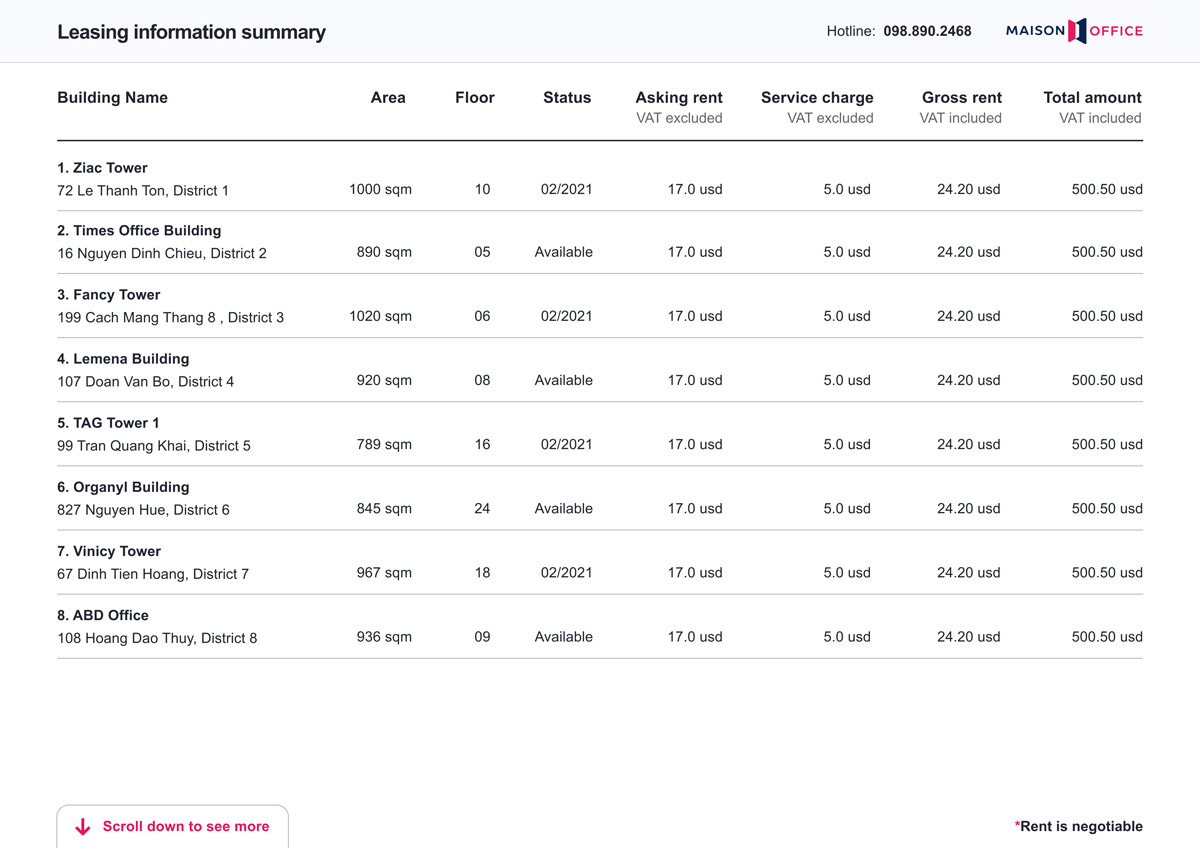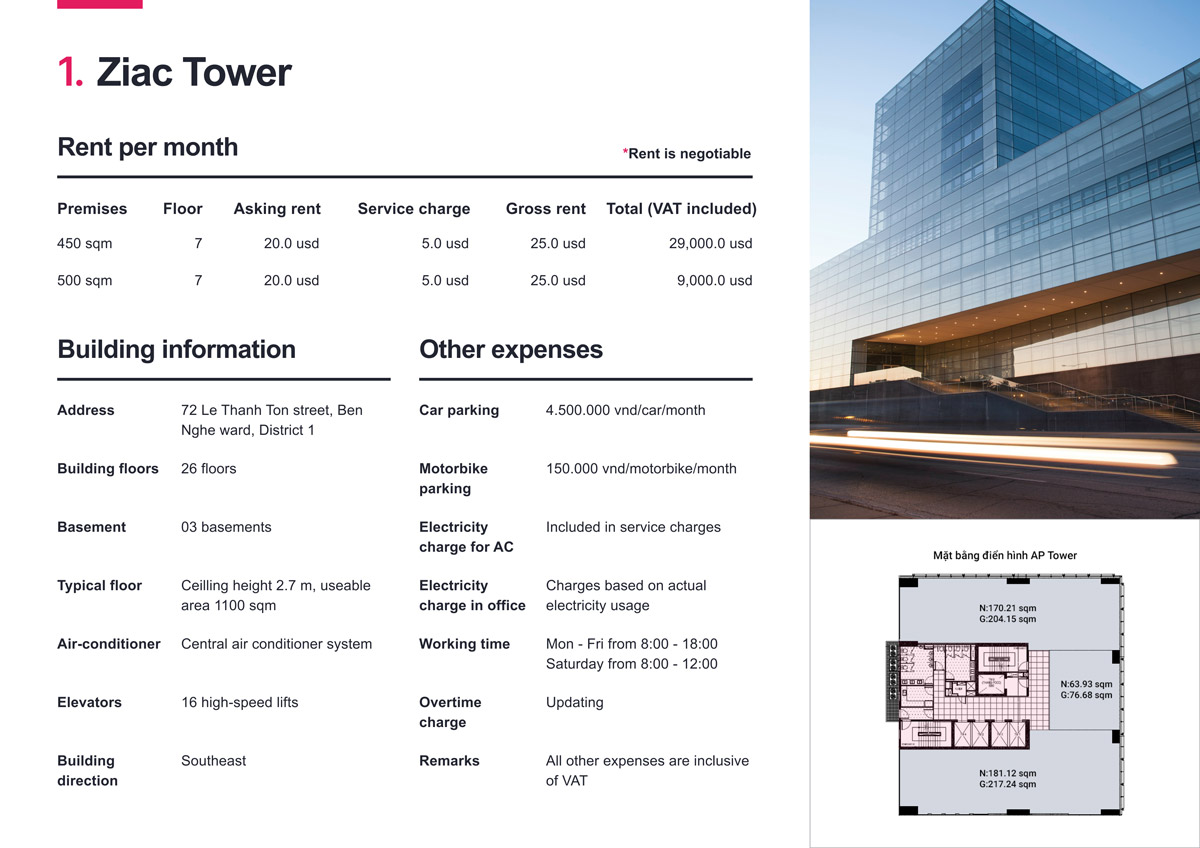Types of Companies in Vietnam: A Guide for Foreign Investors

Navigating the types of companies in Vietnam can be daunting for foreign investors, but it’s a crucial step to success in this vibrant economy. From Foreign-Owned Enterprises to Joint Stock Companies, each structure offers unique benefits tailored to your investment goals. This guide simplifies the types of business in Vietnam, helping you choose wisely.
 |
 |
Table of Contents
Types of Business Entities in Vietnam
When exploring the types of companies in Vietnam, understanding the available business structures is essential for both local entrepreneurs and foreign investors. Vietnam’s Enterprise Law 2020 outlines several types of business in Vietnam, each with unique features tailored to different business needs. From small-scale ventures to large corporations, choosing the right company in Vietnam can significantly impact your success. Below, we dive into one of the simplest yet widely used options: the Sole Proprietorship (Private Enterprise).
Sole Proprietorship (Private Enterprise)
A Sole Proprietorship, also known as a Private Enterprise, is one of the most straightforward types of companies in Vietnam. This business structure is owned and operated by a single individual who bears unlimited liability, meaning the owner is personally responsible for all debts and obligations of the business. Unlike other types of business in Vietnam, such as LLCs or JSCs, a Sole Proprietorship does not have a separate legal entity, blending personal and business assets.

Key Features of Sole Proprietorship in Vietnam
| Ownership | Fully controlled by one individual |
| Liability | Unlimited, exposing the owner’s personal assets to business risks |
| Capital | Easy and cost-effective to establish with minimal legal requirements |
| Management | The owner has complete decision-making power |
Advantages
- Quick setup process, making it ideal for small-scale operations like retail shops or personal services.
- Low operational costs compared to other types of companies in Vietnam.
- Full control over the business without the need to consult partners or shareholders.
Who Should Choose a Sole Proprietorship?
This type of business is perfect for individuals starting a small company in Vietnam, such as freelancers, solo traders, or micro-business owners who value simplicity and autonomy. However, if you’re planning to expand or seek investment, other types of business in Vietnam, like a Limited Liability Company (LLC) or Joint Stock Company (JSC), might be more appropriate.
Limited Liability Company (LLC)
A Limited Liability Company (LLC) is one of the most favored types of companies in Vietnam, offering a balance between operational simplicity and liability protection. It can be structured as a Single-member LLC (owned by one individual or organization) or a Multi-member LLC (with 2 to 50 members). In both cases, members are only liable for debts and obligations up to the amount of capital they contribute, safeguarding personal assets—a key advantage over other types of business in Vietnam like Sole Proprietorships.
Key Features of an LLC in Vietnam
| Ownership | Ranges from 1 to 50 members, depending on the structure |
| Liability | Limited to the capital contributed by each member |
| Capital | Cannot issue shares, restricting fundraising to member contributions or loans |
| Management | Flexible, with a Members’ Council overseeing major decisions in multi-member LLCs |
Advantages
- Protects personal assets due to limited liability, making it safer than a Sole Proprietorship.
- Easy to establish and manage, ideal for small to medium-sized businesses.
- Offers control and privacy, as there’s no requirement to disclose financials publicly like a Joint Stock Company (JSC).
Who Should Choose an LLC?
An LLC is perfect for entrepreneurs or investors starting a company in Vietnam who want liability protection without the complexity of a JSC. It’s especially popular among small to medium enterprises, family businesses, or foreign investors entering the Vietnamese market with controlled risk. Whether you’re launching a tech startup or a trading firm, this structure provides a solid foundation.
Joint Stock Company (JSC)
A Joint Stock Company (JSC) is one of the most versatile and scalable types of companies in Vietnam. It requires a minimum of three shareholders with no upper limit, and its capital is divided into shares that can be freely traded. Shareholders enjoy limited liability, meaning they’re only responsible for debts up to their invested capital—a feature that distinguishes it from riskier types of business in Vietnam like Sole Proprietorships. The ability to issue shares also makes JSCs a powerful tool for raising capital.

Key Features of a JSC in Vietnam
| Ownership | At least 3 shareholders; no maximum limit |
| Liability | Limited to the amount of capital contributed by each shareholder |
| Capital | Can issue shares (ordinary or preferred) to raise funds, including through public offerings |
| Management | Structured with a Board of Directors and a General Meeting of Shareholders; a Supervisory Board is mandatory if there are more than 11 individual shareholders |
Advantages
- Excellent for raising large-scale capital by issuing shares, even on stock exchanges.
- Shareholders can freely transfer shares, enhancing liquidity and flexibility.
- Ideal for businesses with ambitious growth plans or those seeking foreign investment in a company in Vietnam.
Who Should Choose a JSC?
A JSC is the go-to option for entrepreneurs or investors launching a company in Vietnam with plans to expand, go public, or attract significant investment. It suits large-scale industries like manufacturing, technology, or finance, where capital and scalability are priorities. Unlike an LLC, which caps growth potential, a JSC offers the framework for long-term success.
Partnership Company
A Partnership Company is one of the less common but highly specialized types of companies in Vietnam. It requires at least two general partners who bear unlimited liability for the company’s debts, meaning their personal assets are at risk. Additionally, it may include contributing partners who are liable only up to their capital contributions, similar to shareholders in other types of business in Vietnam. This structure combines trust and shared expertise, but it cannot issue shares or securities to raise capital.

Key Features of a Partnership Company in Vietnam
| Ownership | Minimum of 2 general partners; optional contributing partners |
| Liability | General partners have unlimited liability; contributing partners have limited liability |
| Capital | Funded solely by partner contributions, with no option to issue shares |
| Management | General partners jointly manage and make decisions, fostering a collaborative approach |
Advantages
- Builds credibility due to the unlimited liability of general partners, appealing to clients in trust-based industries.
- Allows partners to pool resources, skills, and expertise for a stronger business foundation.
- Simpler structure compared to a Joint Stock Company (JSC), with fewer regulatory burdens.
Who Should Choose a Partnership Company?
This structure suits professionals like lawyers, accountants, or consultants forming a company in Vietnam where personal reputation and expertise are key. It’s ideal for small groups who trust each other and prefer a collaborative model over the solo control of a Sole Proprietorship or the complexity of a JSC. However, it’s less common among foreign investors due to the liability risks.
Foreign-Owned Enterprise (FOE)
A Foreign-Owned Enterprise (FOE) refers to a company in Vietnam wholly or partially owned by foreign individuals or organizations. Typically structured as a Limited Liability Company (LLC) or Joint Stock Company (JSC), an FOE allows foreign investors to hold 100% ownership in many sectors, thanks to Vietnam’s progressive investment policies. Unlike other types of companies in Vietnam such as Partnerships or Sole Proprietorships, FOEs cater to international businesses entering the market, often requiring compliance with specific regulations under the Investment Law.

Key Features of a Foreign-Owned Enterprise in Vietnam
| Ownership | 100% foreign-owned or a mix with local partners, depending on the industry |
| Liability | Limited to the capital contributed, similar to an LLC or JSC structure |
| Capital | Requires a minimum investment capital, varying by sector (e.g., higher for real estate or manufacturing) |
| Management | Must adhere to Vietnam’s Investment Law and may face restrictions in certain restricted industries (e.g., telecommunications, media) |
Advantages
- Full control for foreign investors in permitted sectors, unlike Joint Ventures requiring local partnerships.
- Benefits from Vietnam’s trade agreements and tax incentives for foreign investment.
- Flexible structure, allowing it to operate as one of the scalable types of business in Vietnam.
Who Should Choose a Foreign-Owned Enterprise?
An FOE is ideal for foreign entrepreneurs or corporations establishing a company in Vietnam with a long-term vision, such as in manufacturing, trading, or technology. It suits those seeking full ownership and operational control while leveraging Vietnam’s growing economy. For smaller-scale entries, options like a Representative Office might be considered, but FOEs offer the most autonomy among foreign-focused types of business in Vietnam.
Representative Office & Branch Office
The Representative Office and Branch Office are specialized types of companies in Vietnam designed primarily for foreign businesses. While they serve as extensions of an overseas parent company, they differ in scope and function, offering flexible ways to establish a foothold in Vietnam without forming a fully independent company in Vietnam.

Representative Office
Purpose: Acts as a liaison for the parent company, focusing on market research, promotion, and relationship-building.
Key Features:
| Liability | No revenue-generating activities allowed; it cannot sign contracts or conduct direct sales |
| Capital | Simple setup with minimal capital requirements |
| Management | Managed by a Chief Representative appointed by the parent company |
Advantages:
- Low-cost entry to test the Vietnamese market.
- No tax obligations on profits since it doesn’t generate income.
Branch Office
Purpose: Operates as a dependent unit of the parent company, allowed to conduct commercial activities within the parent’s scope.
Key Features:
| Liability | Can engage in sales, sign contracts, and generate revenue |
| Regulations and tax obligations | Subject to stricter regulations and tax obligations |
| Permission | Requires licensing from Vietnamese authorities |
Advantages:
- Enables direct business operations without forming a separate company in Vietnam.
- Stronger presence than a Representative Office, ideal for industries like banking or logistics.
Who Should Choose a Representative Office or Branch Office?
A Representative Office suits foreign businesses exploring Vietnam’s market—perfect for initial research or brand promotion before committing to larger types of companies in Vietnam like an FOE or JSC. Conversely, a Branch Office is ideal for companies ready to conduct sales or services, such as in trading or manufacturing, without the need for a fully independent entity. Both options offer strategic flexibility for international expansion.
State-Owned Enterprise (SOE)
A State-Owned Enterprise (SOE) is one of the distinctive types of companies in Vietnam, where the government holds full or majority ownership. Typically structured as a Limited Liability Company (LLC) or Joint Stock Company (JSC), SOEs operate in strategic industries such as energy, telecommunications, and infrastructure. Unlike private types of business in Vietnam like Sole Proprietorships or Partnerships, SOEs are designed to serve national interests while pursuing commercial goals, often benefiting from state support.

Key Features of a State-Owned Enterprise in Vietnam
| Ownership | Wholly or majority-owned by the Vietnamese government |
| Liability | Limited to the capital contributed, depending on its LLC or JSC structure |
| Purpose | Balances profit-making with public service objectives in critical sectors |
| GovernanceGovernance | Managed by state-appointed boards, subject to government oversight |
Advantages
- Strong financial backing and resources from the government, reducing operational risks.
- Priority access to large-scale projects and monopolistic sectors like utilities or transportation.
- Stability and credibility as a company in Vietnam, appealing to partners and stakeholders.
Who Should Engage with an SOE?
SOEs aren’t an option for private investors to establish but are key players for those partnering with a company in Vietnam. They suit businesses seeking collaboration in state-dominated industries—think foreign firms bidding on infrastructure projects or suppliers to energy giants like Petrovietnam. For private entrepreneurs, other types of business in Vietnam, such as LLCs or JSCs, offer more autonomy.
Comparison of Business Structures in Vietnam
Choosing the right business structure is a critical step for anyone looking to establish a company in Vietnam. Each option offers distinct advantages and limitations. Whether you’re a local entrepreneur or a foreign investor exploring types of business in Vietnam, understanding how these structures compare can guide your decision. Below, we provide a clear comparison of the most common business entities to help you find the best fit.
| Type of Company | Sole Proprietorship | LLC | JSC | Partnership | FOE | SOE | Branch/Representative Office |
| Legal Status | No legal entity separate from owner | Separate legal entity | Separate legal entity | Separate legal entity | Separate legal entity | Separate legal entity | Not a separate legal entity |
| Ownership | One individual | 1 or 2–50 | Minimum 3 shareholder no maximum | At least 2 general partners | 100% foreign-owned or joint venture | Majority or 100% owned by Vietnamese government | Parent company (local or foreign) |
| Liability | Unlimited personal liability | Limited to capital contribution | Limited to capital contribution | Unlimited for general partners | Limited to capital contribution | Limited to state-contributed capital | Parent company bears full liability |
| Capital Contribution | Owner’s own capital | Capital from individuals or organizations | Shares can be issued and transferred | Capital from partners | Foreign direct investment or equity | Government budget or state investment | Funded by parent |
| Key Notes | Simple setup, high risk for personal assets | Most common structure for SMEs | Suitable for larger businesses or scaling up through capital mobilization | High trust-based, used in legal, consulting, auditing fields | Must comply with investment laws, sector-specific restrictions may apply | Plays strategic roles in infrastructure, energy, and national development | Cannot conduct direct profit-generating activities (for Rep.Offices) |
Key Factors to Consider When Choosing a Business Type
Selecting the right business structure is a pivotal decision when establishing a company in Vietnam. Whether you’re a local startup or a foreign investor exploring types of business in Vietnam, understanding the key factors can simplify the process and set your venture up for success. Below, we outline the essential considerations to guide your choice.
Ownership and Control
- What to Consider: How many owners will be involved, and how much control do you want?
- Impact: A Sole Proprietorship offers full control to one individual, while a Partnership or Joint Stock Company (JSC) involves multiple stakeholders. A Limited Liability Company (LLC) balances control with up to 50 members, ideal for small groups.
- Example: Solo entrepreneurs might prefer a Sole Proprietorship, whereas foreign investors might opt for a Foreign-Owned Enterprise (FOE) for full ownership.
Liability Protection
- What to Consider: Are you willing to risk personal assets?
- Impact: Structures like Sole Proprietorships and Partnerships (for general partners) carry unlimited liability, exposing personal wealth. Conversely, LLCs, JSCs, and FOEs limit liability to contributed capital, offering a safety net.
- Example: Risk-averse founders often choose an LLC over a Partnership for this reason.
Capital Requirements and Funding
- What to Consider: How much capital do you need, and how will you raise it?
- Impact: JSCs can issue shares to attract investors, making them ideal for scaling. LLCs and Partnerships rely on member or partner contributions, while Sole Proprietorships depend solely on the owner. FOEs may require higher initial capital based on industry regulations.
- Example: A tech startup aiming to go public might select a JSC, while a small retailer might stick with a Sole Proprietorship.
Operational Complexity
- What to Consider: How much time and resources can you dedicate to compliance and management?
- Impact: Sole Proprietorships and Representative Offices are simple to set up and run. JSCs and State-Owned Enterprises (SOEs) involve complex governance, such as boards and reporting. LLCs and Branch Offices fall in between.
- Example: A consultant might favor a Partnership’s moderate complexity over a JSC’s regulatory demands.
Business Goals and Scalability
- What to Consider: Is your focus on short-term profits or long-term growth?
- Impact: Representative Offices suit market exploration without commercial activity, while JSCs and FOEs support expansion. Sole Proprietorships and Partnerships are less scalable due to funding limits.
- Example: A foreign firm testing Vietnam might start with a Representative Office, then transition to an FOE.
Tax and Legal Obligations
- What to Consider: What are the tax implications and regulatory requirements?
- Impact: Branch Offices and FOEs face corporate taxes on profits, while Representative Offices avoid them due to non-commercial status. SOEs may benefit from state incentives, unlike private types of companies in Vietnam.
- Example: A low-budget entry might favor a Representative Office to minimize tax burdens.
Your ideal type of business in Vietnam depends on aligning these factors with your vision. A small, solo operation might thrive as a Sole Proprietorship, while a capital-intensive venture could benefit from a JSC. For foreign investors, FOEs or Branch Offices often make the most sense.
For foreign investors, choosing the right type of company in Vietnam can unlock immense opportunities in this fast-growing market. Whether you opt for a Foreign-Owned Enterprise, Joint Stock Company, or Representative Office, aligning your structure with your goals is key.
Once you’ve selected the right company structure, it’s time to choose a strategic location to operate. Maison Office, your trusted commercial leasing agent in Vietnam, offers tailored solutions to help you find the most suitable office for lease in Ho Chi Minh City or office for lease in Hanoi for your new business.











